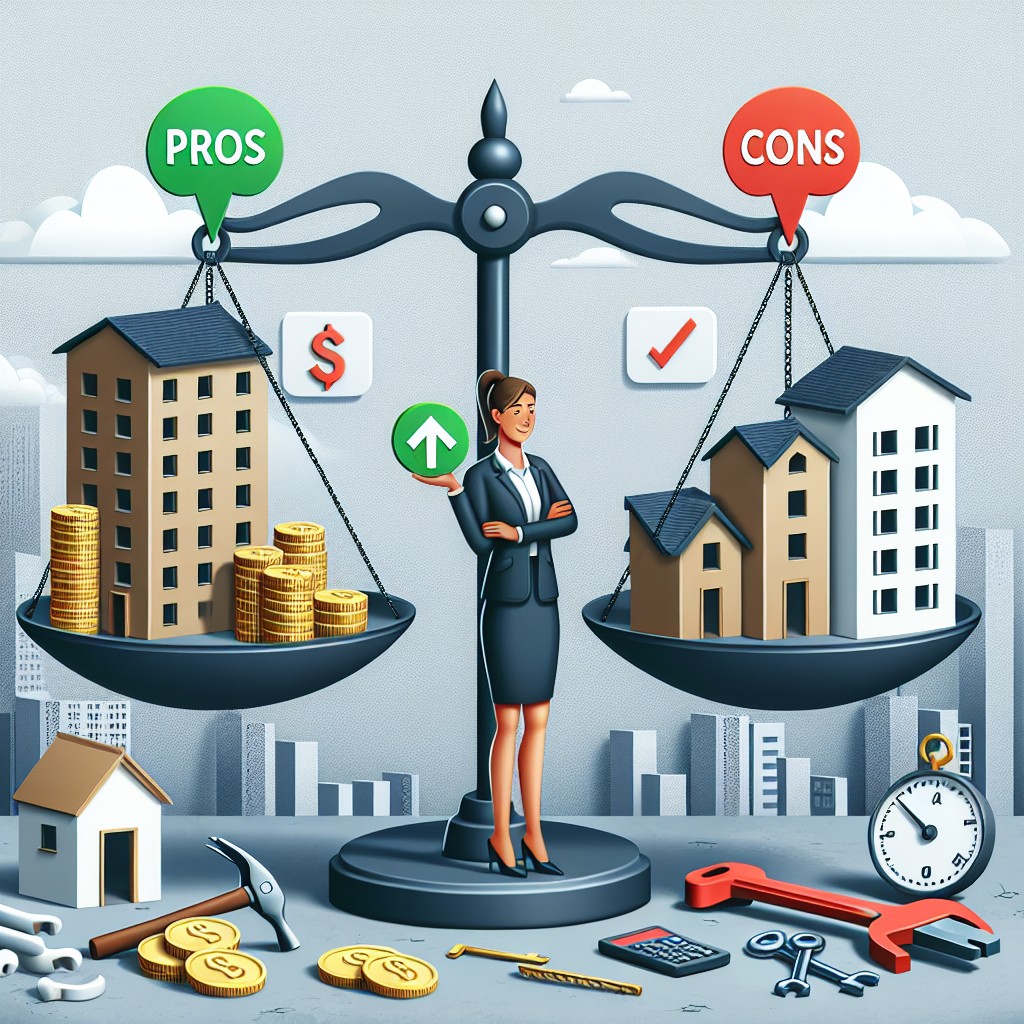Investing in real estate, particularly rental properties, can be a lucrative venture. However, like any investment, there are both pros and cons to consider. In this article, we will explore the advantages and disadvantages of owning rental properties, allowing you to make an informed decision before diving into the world of real estate investment.
Pros of Owning Rental Properties:
1. Steady Cash Flow: One of the primary benefits of owning rental properties is the potential for a steady stream of passive income. By charging rent to tenants, you can generate regular cash flow that can help cover mortgage payments, property taxes, and other expenses.
2. Appreciation: Real estate properties tend to appreciate over time, meaning their value increases. This can result in substantial profits if you decide to sell the property in the future.
3. Tax Benefits: Rental property owners enjoy several tax advantages, including deductions for mortgage interest, property taxes, insurance, and maintenance expenses. These deductions can significantly reduce your overall tax liability.
4. Portfolio Diversification: Owning rental properties allows you to diversify your investment portfolio. Real estate investments have historically shown low correlation with other asset classes, such as stocks and bonds. This means that real estate can provide a hedge against market volatility.
5. Control over Investment: Unlike other investment options, owning rental properties gives you greater control over your investment. You can make decisions regarding property management, tenant selection, rental rates, and property improvements.
Cons of Owning Rental Properties:
1. Time and Effort: Managing rental properties requires time and effort. From advertising vacancies and screening tenants to handling maintenance requests and collecting rent, being a landlord can be demanding and time-consuming.
2. Property Maintenance and Repairs: As a property owner, you are responsible for property maintenance and repairs. This can include regular upkeep, emergency repairs, and dealing with unforeseen maintenance issues. These costs can eat into your rental income.
3. Tenant Issues: Renting out properties comes with the risk of problematic tenants. Dealing with late payments, property damage, evictions, and legal disputes can be stressful and time-consuming.
4. Vacancy and Cash Flow Risks: Rental properties may experience periods of vacancy, resulting in a loss of rental income. It's crucial to have a financial buffer to cover mortgage payments and expenses during these periods.
5. Market Volatility: Real estate markets can be subject to fluctuations, which can impact property values and rental demand. Economic downturns can lead to reduced rental rates and longer vacancy periods.
In conclusion, owning rental properties can offer numerous advantages, such as steady cash flow, potential appreciation, tax benefits, portfolio diversification, and overall control over your investment. However, it also comes with challenges like time commitment, maintenance responsibilities, tenant issues, vacancy risks, and market volatility. Before investing in rental properties, carefully weigh the pros and cons to determine if it aligns with your financial goals and risk tolerance. Seeking advice from real estate professionals can also provide valuable insights and guidance in making informed investment decisions.

Published on March 18, 2023
Real Estate Investment: Pros and Cons of Owning Rental Properties
Share This Article
More Articles You Might Like
Discover More Content
Explore our collection of articles across various topics and categories. From cutting-edge technology insights to wellness wisdom, we curate the best stories to expand your horizons.
Article ID: 276